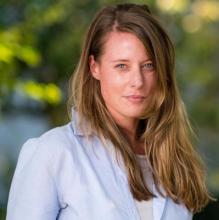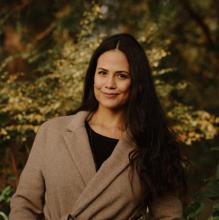Healthcare workers experience violence from those they serve more than any other occupation. Although BC has implemented staff violence prevention education, evaluating its effectiveness across complex healthcare settings is challenging. Sharon’s research will apply a context-focused realist approach to evaluate the BC healthcare violence prevention education.
Research Description
My Interdisciplinary PhD research involves using a realist methodology to evaluate the British Columbia (BC) violence prevention education program for healthcare workers. Violence from patients, visitors and families towards healthcare workers is an international issue. In BC, healthcare workers experience more violence than any occupation with a higher rate of injury from violence than individuals in law enforcement. Although a significant investment has been made in violence prevention education for BC healthcare employees, a meaningful evaluation of the program effectiveness has been challenging. The realist approach explores rather than controls for variables, examining how and why people in varying social, cultural and organizational settings respond differently to the same experiences, opportunities, and resources. A realist evaluation of violence education will provide theories about how, for whom, and in which contexts the program works most effectively, informing further implementation and investment to address healthcare violence and related injuries.
What does being a Public Scholar mean to you?
The Public Scholar Initiative embodies and supports the reasons that I left a career to pursue a PhD: to contribute something to healthcare—and society—in a new way. Being a public scholar provides support to pursue research I am passionate about, enables me to share my research and research approach to a broader audience, and provides me with a community for support and continual learning.
In what ways do you think the PhD experience can be re-imagined with the Public Scholars Initiative?
The Public Scholars Inititiative (PSI) creates an opportunity to demonstrate to public sector and political leaders the practical value both of research that is focussed on current societal issues, and of cross sector partnerships. As it evolves, the PSI could provide a powerful partnership PhD model where universities and employers share PhD sponsorship for individuals to conduct valuable PhD research as part of their organizational role.
How do you envision connecting your PhD work with broader career possibilities?
After completion of my PhD, my career objective through teaching and consulting will be to use and promote the realist research evaluation methodology to provide evidence that informs program and policy decision-making in the health and social sectors. Modeled on the successful network of centers for realist research in the UK, my hope is to establish a Canadian network of academic and public sector partnerships committed to the realist approach.
How does your research engage with the larger community and social partners?
As field research to be conducted in BC health organizations this project requires collaboration and partnerships with BC health employers, unions and regulatory organizations such as WorkSafeBC. Using a motto of "nothing about me without me", through early engagement to establish shared goals, practical plans, and effective knowledge translation strategies, the stakeholders are partners every step of the project including all communications and sharing of results.
Why did you decide to pursue a graduate degree?
After a career in healthcare I left a leadership position to pursue a PhD fuelled by a passion to continue to address emotional health issues in the healthcare workplace. As a leader I could not find the evidence or evaluation tools I needed to inform program and policy decisions. My goal is to conduct meaningful research that models partnerships between academia and the public sector, provides practical tools, and supports leaders to create healthy workplaces.
Why did you choose to come to British Columbia and study at UBC?
UBC was a natural choice for my PhD for multiple reasons. The Interdisciplinary Studies Graduate Program (ISGP) offers the latitude for me to pursue the integration of areas of knowledge key to my research goals, and the ability as a mature learner to design and guide my own program. Of equal importance, the particular relevant knowledge, experience and approach of my UBC faculty supervisors provides the support and mentoring I need to be successful.
After a career in healthcare I left a leadership position to pursue a PhD fuelled by a passion to continue to address emotional health issues in the healthcare workplace (...) My goal is to conduct meaningful research that models partnerships between academia and the public sector, provides practical tools, and supports leaders to create healthy workplaces.




